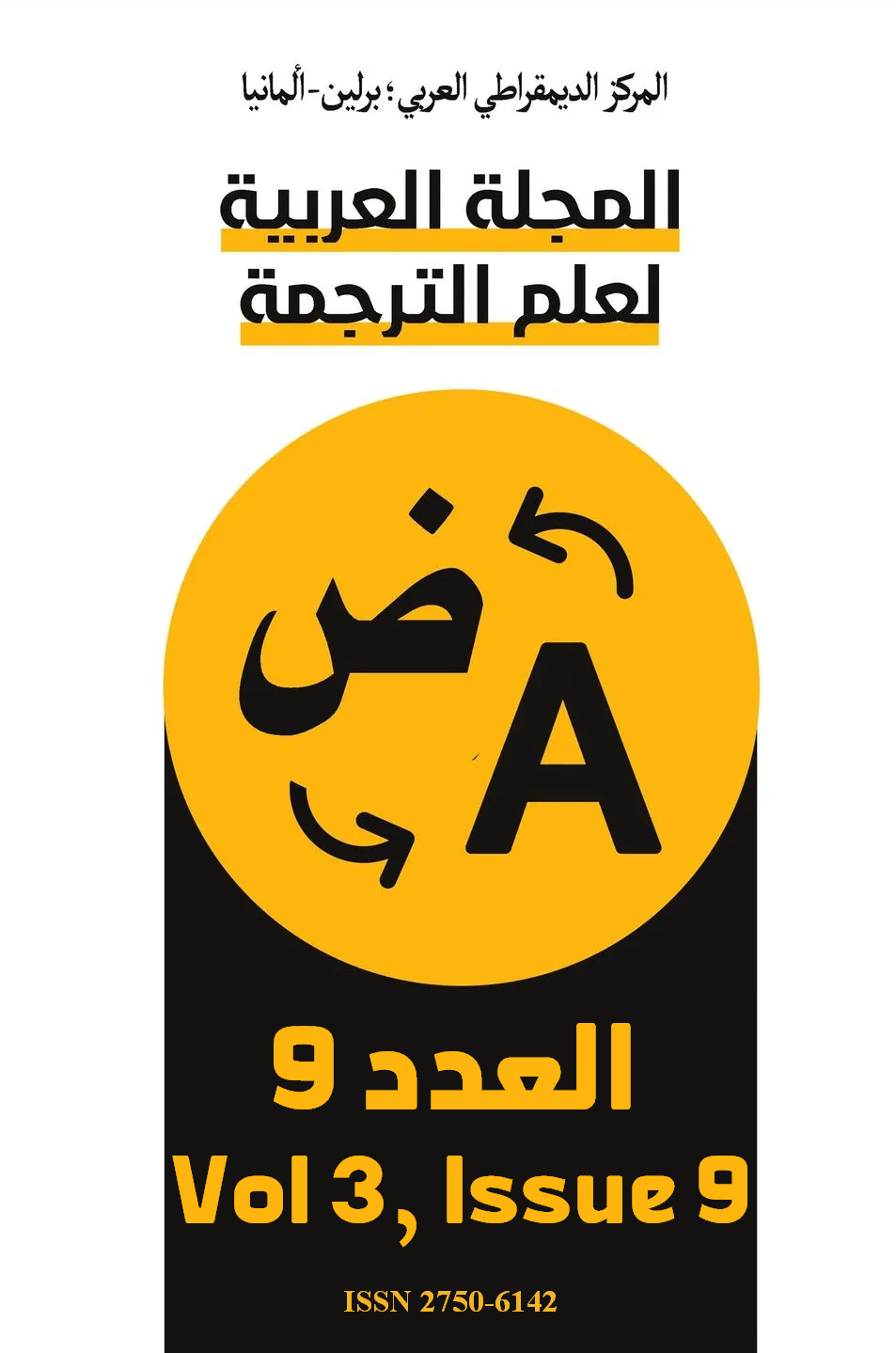من "الطبقات الخطرة" إلى "المتمردين الهادئين": سياسة الجماعات التابعة الحضرية في الجنوب العالمي
DOI:
https://doi.org/10.63939/AJTS.ns36q733الكلمات المفتاحية:
البلدان النامية، المقاومة اليومية، العولمة، التعدي الهادئ، سياسة الشوارعالملخص
تتمثل إحدى النتائج الرئيسية لإعادة الهيكلة العالمية الجديدة في البلدان النامية في وجود عملية مزدوجة قائمة على الاندماج من جهة، والاستبعاد الاجتماعي والتوجه نحو القطاع غير الرسمي من جهة أخرى. حيث أدت هذه العمليات إلى زيادة نمو الفئات المهمشة وغير المنظمة في مدن العالم الثالث. وعليه، كيف تستجيب القواعد الشعبية الحضرية لتهميشها واستبعادها؟ وما شكل السياسة، إن وجد، الذي تتبناه؟ من خلال الاطلاع النقدي على المنظورات السائدة، بما في ذلك ثقافة الفقر، استراتيجية البقاء، الحركات الاجتماعية الحضرية، والمقاومة اليومية، يقترح هذا المقال أن إعادة الهيكلة العالمية الجديدة تعيد إنتاج الذوات (مثل الفئات المهمشة وغير المنظمة، العاطلين عن العمل، العمال المؤقتين، العمال الذين يعيشون على الكفاف في الشوارع، أطفال الشوارع وما شابه) وكذا الفضاء الاجتماعي. الأمر الذي يجعلنا أمام ميدان للنضالات السياسية التي لا تستطيع التصورات النظرية الحالية تفسيرها في حد ذاتها. لذلك، يقترح هذا المقال نظرة بديلة وهي "التعدي الهادئ للمعتاد"، والتي قد تكون مفيدة لفحص نشاطية الجماعات التابعة الحضرية في مدن العالم الثالث.
التنزيلات
المراجع
Abu-Lughod, L. (1990). The Romance of Resistance: Tracing Transformations of Power Through Bedouin Women. American Ethnologist, 17(1), 41–55 DOI: https://doi.org/10.1525/ae.1990.17.1.02a00030
Arevalo, P. (1997). Huaycan Self-Managing Urban Community: May Hope be Realized. Environment and Urbanization, 9(1), 59-79 DOI: https://doi.org/10.1630/095624797101287444
Bayat, A. (1997). Cairo’s Poor: Dilemmas of Survival and Solidarity. Middle East Report, 202, 2-6 DOI: https://doi.org/10.2307/3013030
Bayat, A. (1997). Street Politics: Poor People’s Movements in Iran. New York: Columbia University Press
Brown, M. (1996). On Resisting Resistance. American Anthropologist, 98(4), 729-49 DOI: https://doi.org/10.1525/aa.1996.98.4.02a00030
Brown, N. (1990). Peasant Politics in Modern Egypt: The Struggles vs. the State. New Haven, CT: Yale University Press DOI: https://doi.org/10.2307/j.ctt2250w00
Castells, M. (1983). The City and Grassroots. Berkeley: University of California Press
Cohen, R. (1982). Cities in Developing Societies. In H. Alavi and T. Shanin (Eds.). Introduction to the Sociology of ‘Developing Societies’ (pp. 366-86). London: Macmillan DOI: https://doi.org/10.1007/978-1-349-16847-7_29
Cole, M., & Hill, D. (1995). Games of Despair and Rhetorics of Resistance: Postmodernism, Education and Reaction. Journal of Sociology of Education, 16(2), 133-50 DOI: https://doi.org/10.1080/0142569950160203
Draper, H. (1978). Karl Marx’s Theory of Revolution. New York: Monthly Review Press
Escobar, E. (1995). Encountering Development. Princeton, NJ: Princeton University Press
Fanon, F. (1967). The Wretched of the Earth. Harmondsworth: Penguin
Foucault, M. (1972). Knowledge/Power. New York: Pantheon
Friedmann, J. (1989). The Dialectic of Reason. International Journal of Urban and Regional Research, 13(2), 217-44 DOI: https://doi.org/10.1111/j.1468-2427.1989.tb00116.x
Ghannam, F. (1997). Relocation and Use of Urban Space. Middle East Report, 202, 17-20 DOI: https://doi.org/10.2307/3013034
Giddens, A. (2000). Sociology. Oxford: Polity Press
Gordon, D. (1988). The Global Economy: New Edifice or Crumbling Foundations? New Left Review, 168, 24-64
Hoodfar, H. (1997). From Marriage to Market. Berkeley: University of California Press
Hoogvelt, A. (1997). Globalization and the Postcolonial World. Baltimore, MD: The Johns Hopkins University Press
Hourcade, B. (1989). Conseillisme, Classe Sociale et Space Urbain: Les squatters du sud de Tehran, 1978–1981. In K. Brown et al. (Eds.). Urban Crisis and Social Movements in the Middle East. Paris: Editions L’Harmattan
Huntington, S. (1968). Political Order in Changing Society. Ithaca, NY: Yale University Press
Huntington, S. & Nelson, J. (1976). No Easy Choice: Political Participation in Developing Countries. Cambridge, MA: Harvard University Press DOI: https://doi.org/10.4159/harvard.9780674863842
Kuppinger, P. (1997). Giza Spaces. Middle East Report, 202, 14-16 DOI: https://doi.org/10.2307/3013033
Leeds, A. (1971). The Concept of the “Culture of Poverty: Conceptual, Logical and Empirical Problems with Perspectives from Brazil and Peru. In E.B. Leacock (Ed.). The Culture of Poverty: A Critique. New York: Simon and Schuster
Leeds, A. & Leeds, E. (1976). Accounting for Behavioral Differences: Three Political Systems and the Responses of Squatters in Brazil, Peru, and Chile. In J. Walton and L. Magotti (Eds.). The City in Comparative Perspective (pp. 193–248). London & New York: John Wiley
Lenin, V. I. (1973). What Is To Be Done. Beijing: Foreign Languages Press
Lewis, O. (1959). Five Families: Mexican Case Studies in the Culture of Poverty. New York: Basic Books
Lewis, O. (1961). The Children of Sanchez: Autobiography of a Mexican Family. New York: Random House
Lewis, O. (1966). La Vida: A Puerto Rican Family in the Culture of Poverty. New York: Random House
McAdam, D., Tarrow, S., & Tilly, C. (1997). Towards an Integrated Perspective on Social Movements and Revolution. In M. I. Linchbach & A Zuckerman (Eds.). Comparative Politics: Rationality, Culture and Structure. Cambridge: Cambridge University Press
McGee, T. G. (1979). The Persistence of Proto-Proletariat: Occupational Structures and Planning of the Future of Third World Cities. In J. Abu-Lughod & R. Hay (Eds.). Third World Urbanization (pp. 257-70). New York: Methuen
Macleod, A. (1991). Accommodating Protest: Working Women, the New Veiling, and Change in Cairo. New York: Columbia University Press
McNally, D. (1998). Globalization on Trial: Crisis and Class Struggle in East Asia. Monthly Review, 50(4), 1-13 DOI: https://doi.org/10.14452/MR-050-04-1998-08_1
Melucci, A. (1994). A Strange Kind of Newness: What’s “New” in New Social Movements? In E. Larana et al. (Eds.). New Social Movements (pp. 101-30). Philadelphia, PA: Temple University Press
Nelson, J. (1970). The Urban Poor: Disruption or Political Integration in Third World Cities. World Politics, 22, 393-414 DOI: https://doi.org/10.2307/2009603
Park, R. (1928). Human Migration and Marginal Man. American Journal of Sociology, 33(6), 881-93 DOI: https://doi.org/10.1086/214592
Perlman, J. (1976). Myth of Marginality. Berkeley: University of California Press
Pile, S. (1997). Opposition, Political Identities and Spaces of Resistance. In S. Pile & M. Keith (Eds.). Geographies of Resistance (pp. 1-32). London: Routledge
Piven, F. & Cloward, R. (1979). Poor People’s Movements: Why They Succeed, How They Fail. New York: Vintage
Reeves, E. B. (1995). Power, Resistance and the Cult of Muslim Saints in a Northern Egyptian Town. American Ethnologist, 22(2), 306-22 DOI: https://doi.org/10.1525/ae.1995.22.2.02a00050
Schuurman, F. & Van Naerssen, T. (1989). Urban Social Movements in the Third World. London: Croom Helm
Scott, J. (1985). Weapons of the Weak: Everyday Forms of Peasant Resistance. New Haven, CT and London: Yale University Press
Scott, J. (1986). Everyday Form of Peasant Resistance. The Journal of Peasant Studies, 13(2), 5-35 DOI: https://doi.org/10.1080/03066158608438289
Singerman, D. (1995). Avenues of Participation: Family, Politics, and Networks in Urban Quarters of Cairo. Princeton, NJ: Princeton University Press DOI: https://doi.org/10.1515/9781400851768
Stiefel, M. & Wolfe, M. (1994). A Voice for the Excluded: Popular Participation in Development. London: Zed Books
Stonequist, E. (1935). The Problem of the Marginal Man. American Journal of Sociology, 41(1), 1-12 DOI: https://doi.org/10.1086/217001
Valentine, C. (1968). Culture and Poverty: Critique and Counter Proposals. Chicago, IL: University of Chicago Press
Vandemoortele, J. (1990). The African Employment Crisis of the 1990s. In C. GreyJohnson (Ed.). The Employment Crisis in Africa. Harare: African Association for Public Administration and Management
Webster, N. (1995). The Role of NGDOs in Indian Development: Some Lessons from West Bengal and Karnataka. The European Journal of Development Research, 7(2), 407-33 DOI: https://doi.org/10.1080/09578819508426646
World Bank. (1995). World Development Report 1995. Oxford: Oxford University Press
Worsley, P. (1984). The Three Worlds. London: Weidenfeld and Nicolson
التنزيلات
منشور
إصدار
القسم
الرخصة

هذا العمل مرخص بموجب Creative Commons Attribution-NonCommercial 4.0 International License.
يتأطرُ نَشَاطَا النشر والتوزيع الخَاصَّيْنِ بمقالات المجلة برخصة المشاع الإبداعي اللاتجارية والحافظة للنسب CC BY-NC 4.0، والتي تنص على الآتي:
- لك كقارئ أو زائر مُطْلَقُ الحرية في:
- المشاركة: نسخ وتوزيع ونقل العمل لأي مكان أو تحويله لأي شكل.
- التعديل:المزج، التحويل، والإضافة على العمل.
لا يمكن لنا كجهة مُرَخِّصَة إلغاء هذه الصلاحيات طالما اتبعتَ شروط الرخصة.
- يتوجب عليك في المقابل احترام الشروط التالية:
- نَسب المُصنَّف (المقالة):يجب عليك نَسب العمل لصاحبه بطريقة مناسبة، وتوفير رابط للترخيص، وبيانُ إذا ما قد أُجريت أي تعديلات على العمل. يُمْكِنُكَ القيام بهذا بأي طريقة مناسبة، ولكن على ألا يتم ذلك بطريقة توحي بأن المُؤَلِّف أو المُرَخِّص مُؤَيِّد لك أو لعملك.
- غير تجاري:لا يمكنك استخدام هذا العمل لأغراض تجارية.
- منع القيود الإضافية: يجب عليك ألا تُطَبِّقَ أي شروط قانونية أو تدابير تكنولوجية تقيد الآخرين من ممارسة الصلاحيات التي تَسْمَحُ بها الرخصة.












